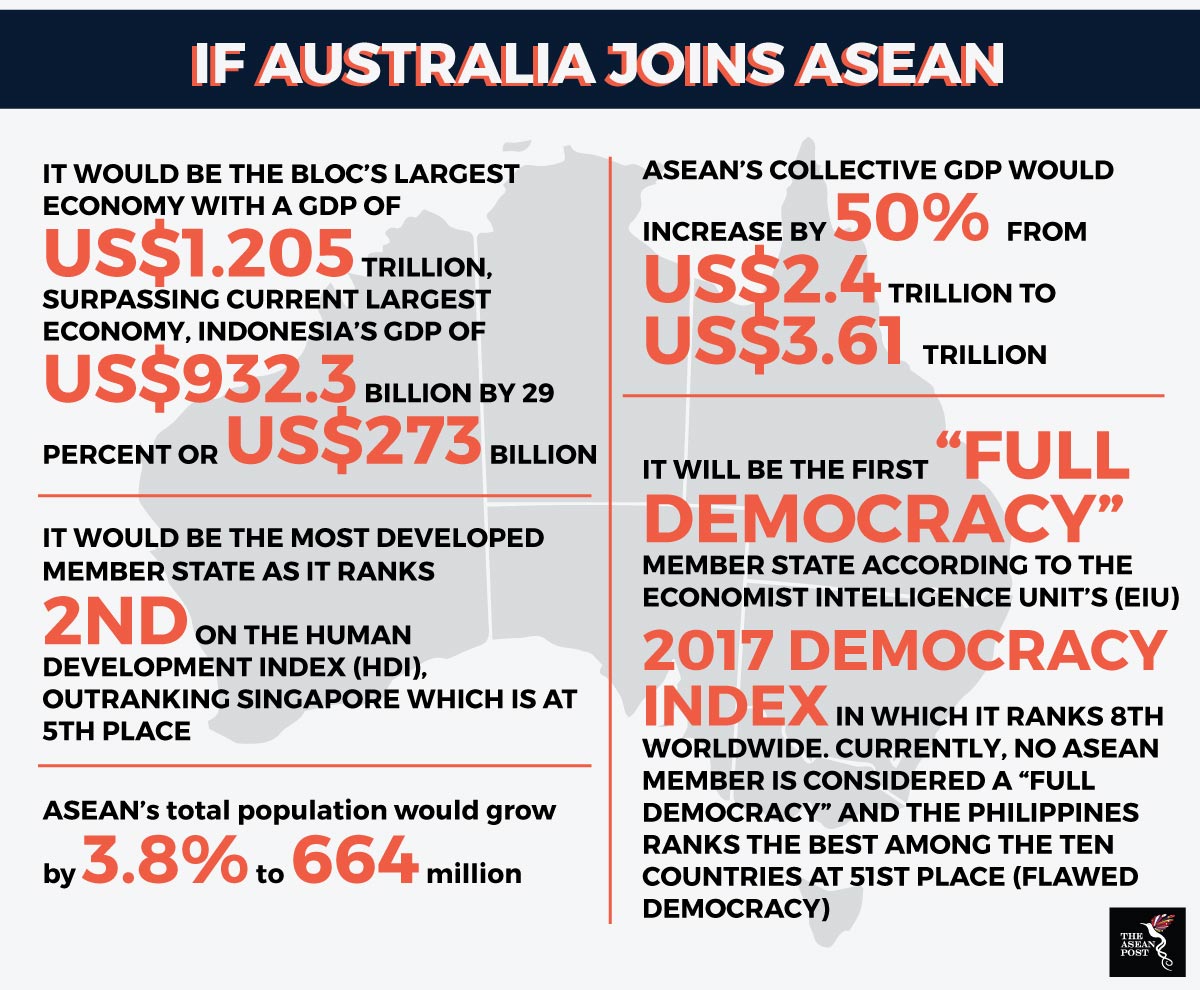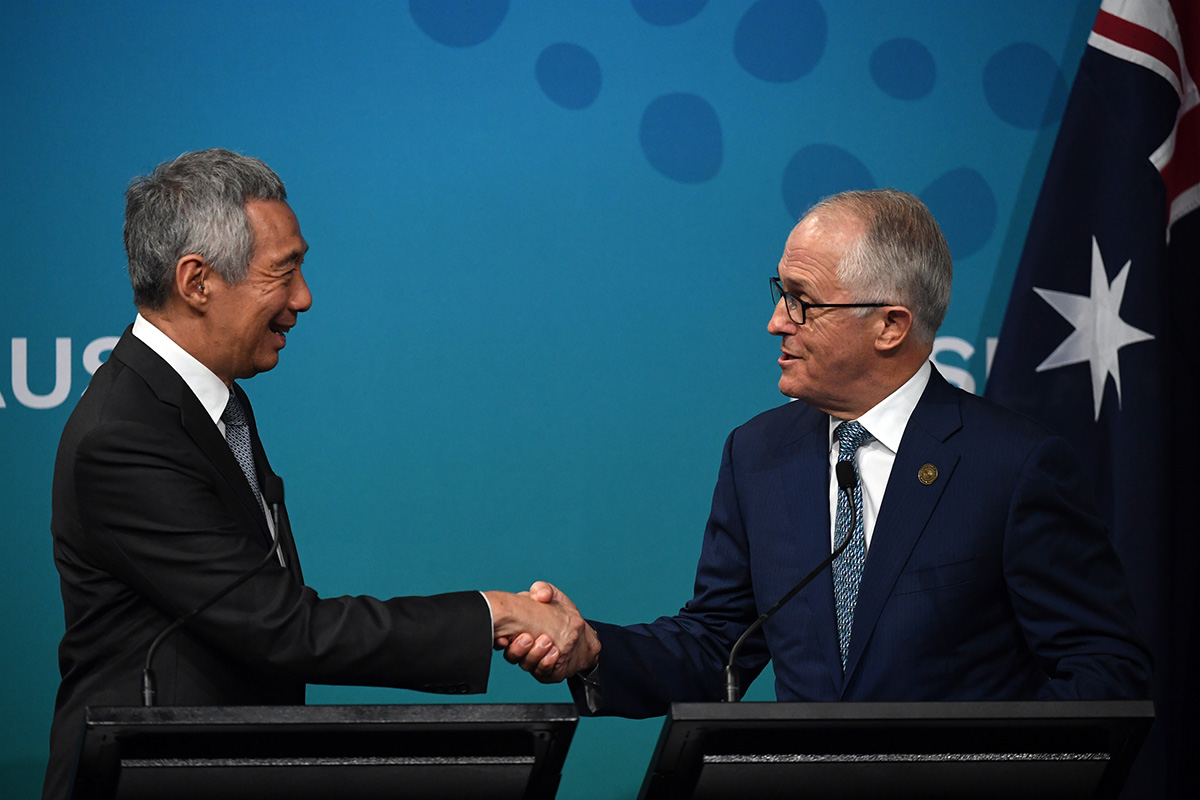Indonesian President, Joko Widodo’s – also known as Jokowi – suggestion that it would be a “good idea” for Australia to join the Association of Southeast Asian Nations (ASEAN) was certainly cause for some baffled reactions which soon sparked a flurry of speculations. Coming just before the ASEAN-Australia special summit, one cannot be faulted for being sceptical of his endorsement. Perhaps Jokowi was merely being polite.
However, a cursory glance at a globe or a world map would likely vindicate Jokowi’s remark as one could argue that Australia sits within the geographic region of Southeast Asia. Although, that is also dependent on how far south-east of the Asian region would one draw the limits to what is considered Southeast Asia.
Australian leaders have flirted with this idea in the past but Canberra has always dismissed the idea – preferring instead to work with the 10-member bloc in its capacity as dialogue partner. Nevertheless, Jokowi’s “invitation” comes at a very interesting and timely juncture in world and regional politics.
To begin with, Indonesia is largely considered ASEAN’s de facto leader and the association’s primus inter pares. In a paper published by the Pacific Review in 2014 examining Indonesia’s leadership record in ASEAN, Professor of International Relations at the S. Rajaratnam School of International Studies (RSIS), Ralf Emmers, concluded that the country’s pattern of regional leadership – while limited – can be characterised as reactive towards the developments of regional events.
While not to the extent of providing international public goods to its ASEAN counterparts, Indonesia’s leadership in regional security does come into play in matters that undermine regional autonomy. Whether or not Jokowi’s endorsement should be taken in its literal sense, his actions should be understood as a reaction to the geopolitical chess play in the ASEAN region.

Australia’s middle power diplomacy
Southeast Asian geopolitics can be characterised as a tussle between the larger powers of China and the United States (US) which has activated a call for the region’s middle powers like Australia, India and Japan to step up. While the agency of ASEAN does carry substantial weight in the region, the association needs as much help as it can get in mediating this tricky balance of power at play.
It comes as no surprise that ASEAN, while holding much potential in mediating between powers, is not perfect. Member states are bound by the oft criticised “ASEAN Way” of consensus and confidence building that can be stifling and frustrating to many. This brand of diplomacy – of inevitably postponing the inevitable – is not sustainable within the wider time frame of international politics. In due time, it can potentially – if not already – label the association as inept, effectively casting the association to the doldrums of history.
This is where Australia can play a crucial role as the Asia Pacific’s middle power.
It is big and strong enough to help refine and to a certain extent, shape regional agenda amid growing concerns of the implications of China’s rise in the region. While the latter is not something completely negative – as Chinese investments are integral to the economic development of ASEAN’s members – Australia can be a useful check on Beijing’s regional aspirations.
Of course, Australia isn’t the only middle power tasked with this. Together with countries like India, Japan and South Korea, they can form a substantial bulwark to ensure the peaceful rise of China.
Moreover, with US President Donald Trump’s trend of policies in Southeast Asia, it is unclear what that superpower aims to achieve in this region (which it terms as the Indo Pacific). Australia on the other hand is more consistent. It has expressed its acknowledgement of the region as a hotbed of development (economically, socially and politically), and has pushed for greater engagement with ASEAN as an organisation and with its individual members. Australia also has the added advantage of being closer in proximity to Southeast Asia.
Jokowi’s endorsement of Australia with regards to membership in ASEAN may not be what triggered keen Australian engagement with the ASEAN region. Whether he meant what he was saying or not, he has certainly invariably cast the island continent into a position of importance in terms of playing a larger role in regional development.
